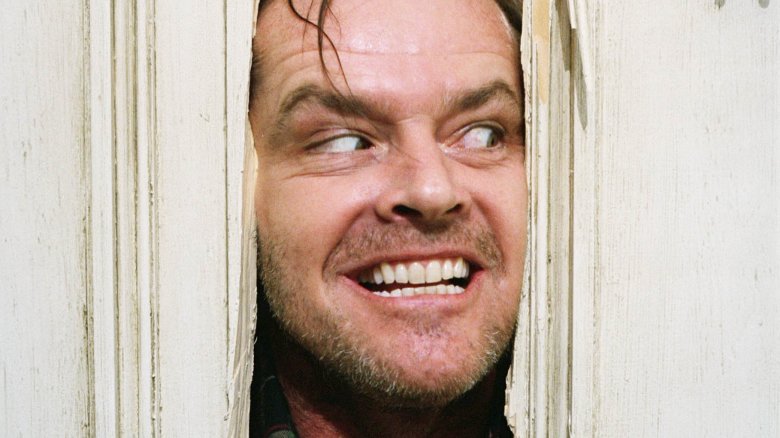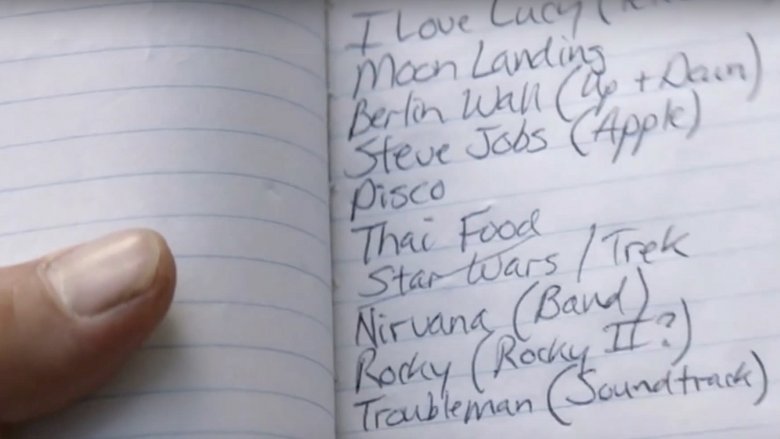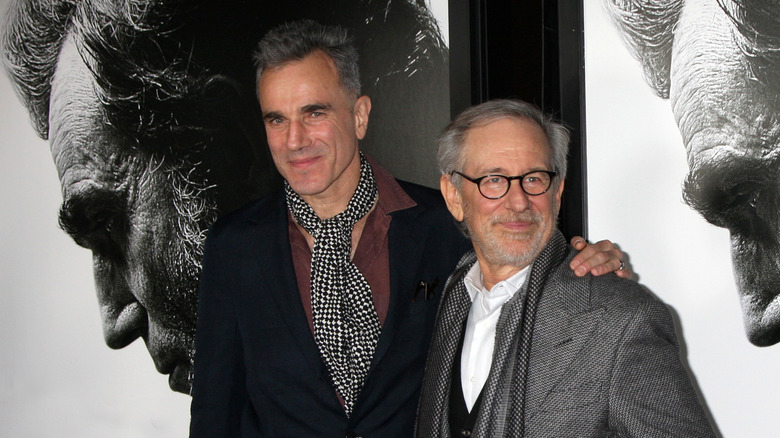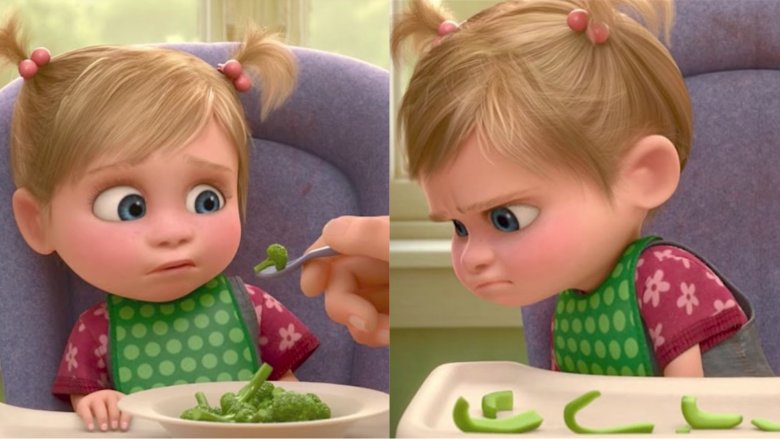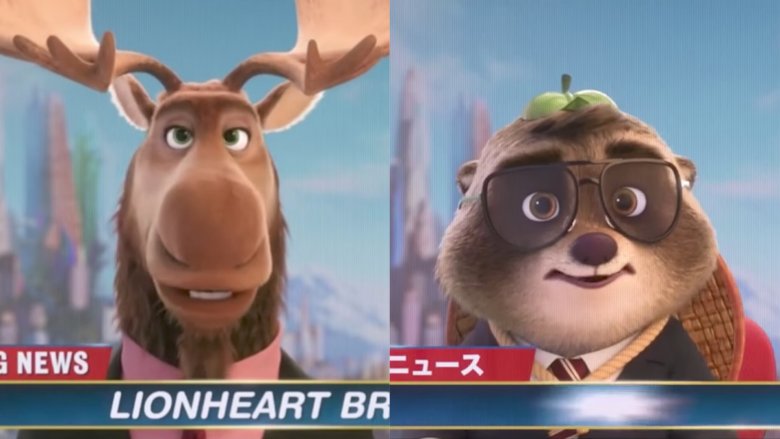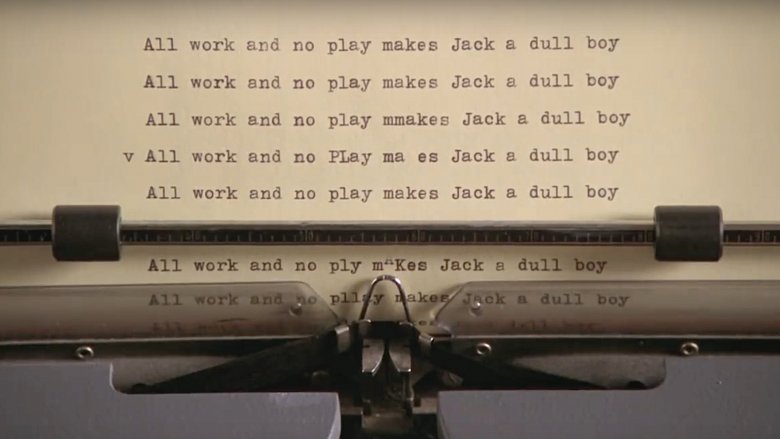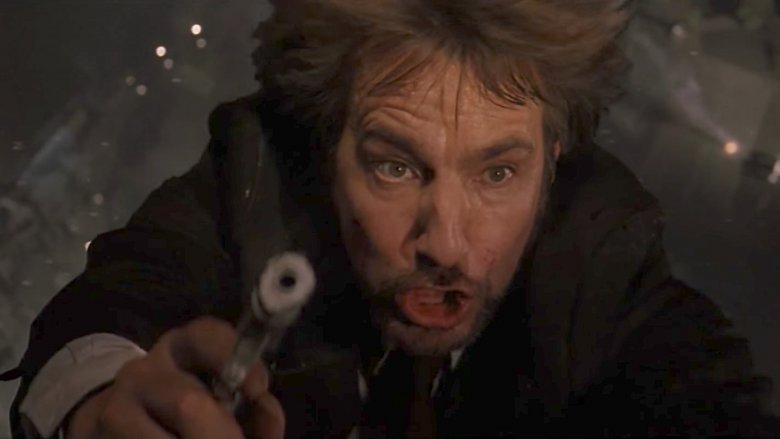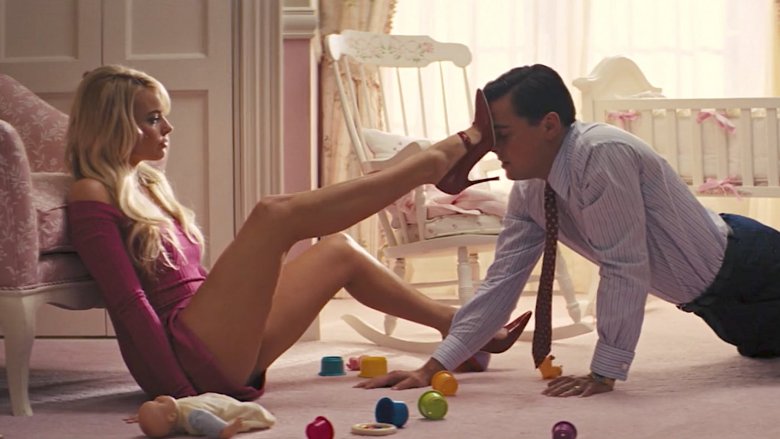Major Films That Were Changed For Other Countries
We think of movies as entertainment, but they're also a commodity—and in order to reach the broadest possible audience, Hollywood will go to great lengths to accommodate the masses, including foreign audiences who may not respond to fart jokes, bare breasts, and blood-soaked drug busts the same way American viewers do.
In fact, there are billions of potential movie viewers outside America's borders, and plenty of other countries have all but forced some of your favorite films to go under the knife for a culturally sensitive facelift. Western filmmakers have also self-edited their work to better mesh with another culture's sense of humor, political affiliations, or social norms. Read on for some of the biggest blockbusters that were altered for international audiences.
Captain America: The Winter Soldier
Marvel's MCU rakes in an average of $744 million per international release. In other words: while Steve Rogers, a.k.a. Captain America, is as red, white, and blue as it gets, foreign audiences make up a huge chunk of revenue for the cinematic adventures of Cap and crew. So it would only make sense that the first Avenger's second outing—Captain America: The Winter Soldier—would find a unique way to pay homage to international viewers.
Early in the film, we catch a glimpse of Steve's to-do list—past and present things of note to help the Avenger get better acquainted with modernity. While the list shown in the domestic release references pop culture figures and important events like Steve Jobs and the Berlin Wall "(Up + Down)," foreign audiences watching the film in certain countries were treated to entries related to their respective region. Where American viewers got I Love Lucy, Russian audiences got a Yuri Gagarin name drop, and South Korean fans caught a reference to popular rhythm game Dance Dance Revolution.
Demolition Man
This one requires a bit of a history lesson. Today, fast food giant Taco Bell is a ubiquitous part of modern global civilization...but that hasn't always been the case.
Rewind to 1993, a simpler time when the notorious Doritos Locos Taco was just a twinkle in a stoner's (bloodshot) eye. The dystopian, satire-tinged Demolition Man was one of the biggest action films of the year, ranking No. 1 on its opening weekend and maintaining a place in the top 10 theatrical releases for over a month. Bursting with blood-splattering violence and profanities aplenty, one would be forgiven for assuming that this Sylvester Stallone-led cyberpunk frag-fest made it to this list for its over-the-top, well, everything.
But rather than cut down on the f-bombs or eyeball removals, execs were more concerned that foreign audiences wouldn't recognize the persistent Taco Bell logo that becomes the basis of a comedic exchange between John Spartan (Sylvester Stallone) and Lenina Huxley (Sandra Bullock) about how "Taco Bell was the only restaurant to survive the franchise wars." In the end, various international releases of the sci-fi film saw the Taco Bell logo, along with all spoken instances of its name, painstakingly replaced with references to Pizza Hut in post-production. Yet after all that, the Taco Bell logo can still be seen in certain scenes, and its name still appears in the credits of modified versions of the movie.
Talladega Nights
Talladega Nights is a PG-13-rated Will Ferrell comedy that, while containing exactly zero naughty bits or bare bosoms, was censored in Iran because it depicted a shirtless and pantless Ferrell. The solution was simple: the filmmakers built a (digital) wall to cover him up. While this may sound more like the plot of a comedy than a bit of trivia, it's a lot more complicated—and political—than it sounds.
While the west enjoys a nice bit of casual nudity every now and again, Iran, a country with one of the world's strictest film censorship boards, does not. In fact, Iran has never had the most amicable relationship with cinema. Many Iranian clerics denounced movies in the 1970s altogether, as they considered it a form of "forbidden" (or, "haram") art. But when the Iranian regime realized that like it or not, Western movies were going to find their way into Iranian households, they decided to give in. Instead of prohibiting them outright, they set up 37 censorship regulations—including the complete covering of open necklines and the removal of scenes depicting cocktail consumption. If they aren't followed? Well, the Islamic Republic of Iran will take it upon themselves to, erm, fix it.
Still, it's kind of hilarious to imagine that, somewhere in those 37 regulations, there might be a section titled "Will Ferrell in tighty whities."
Lincoln
Not all international releases are edited to keep "harmful" scenes or dialogue from reaching foreign viewers. Sometimes, like in the case of 2012's historical biopic Lincoln, fundamental changes to the original film take the form of additional material. Typically, these additions are meant to provide extra information for audiences who wouldn't otherwise catch American cultural references—or understand the relevance of hugely important historical figures, like the 16th President of the United States.
When Lincoln was released overseas, it included a number of additional scenes, like a minute-long collection of black and white photographs accompanied with a score by legendary Hollywood composer John Williams meant to "contextualize" the events portrayed in the film. According to The Hollywood Reporter, it takes a bit of creativity to sell a "uniquely American" film to audiences unfamiliar with President Lincoln's involvement in ending slavery in the U.S. Thus, the Japanese release of Lincoln included one additional extra scene: a nearly minute-long introductory preamble by Spielberg himself explaining the historical climate and major events—including the Civil War—surrounding the film.
Toy Story 2
The distinction between patriotism and nationalism can get blurry, especially in the creative process. But where many films cross the fine line into overzealous territory, Toy Story 2 manages to avoid it because...well, because it's a kid-friendly film about the trials and tribulations of a ragtag squad of sentient toys. But for better or for worse, Pixar has always been extremely sensitive to other cultures—sometimes to an eyebrow-raisingly perplexing degree.
One of their more over-the-top instances of self-censorship shows up during the climactic speech Buzz gives his team prior to their rescue mission to save Woody from the clutches of greedy toy collector Al. While the domestic release saw Buzz playing motivational speaker to his pals in front of a superimposed American flag, the international cut swaps out the star-spangled banner—which is complimented by the national anthem of the same name—for a more universal image: a spinning globe complete with fireworks and a triumphant tune. Sure, maybe it's an example of another studio pandering to international audiences—or maybe Pixar just doesn't want to alienate billions of non-American kids. Either way, it wasn't the last time the animation juggernaut would switch things up for the kiddies overseas.
Inside Out
With an all-star cast, a talented director, and even consulting psychologists to work out all the brain-y bits, it came as no surprise that Pixar's 2015 animated dramedy Inside Out proved a huge hit with parents and young viewers alike. But hitting it big takes nuance—and careful consideration of audience expectations—so when exporting their brainchild to Japan, Pixar made a few changes, like swapping out the father character's daydream from hockey to soccer, a more universally beloved sport. They also made a very specific change to three very specific scenes that, without proper context, may have Western audiences scratching their heads.
The scenes in question all depict main character Riley Anderson experiencing "disgust" at the thought of eating broccoli. Peter Docter, the film's director, realized that while American children would be able to relate to this recurring joke, it might be lost on children from Japan who don't dry-heave at the mere sight of the stuff. Instead, he and his team decided on an alternative gross green to get Japanese children sympathizing with Inside Out's protagonist: green peppers. Because apparently, Japanese kids can't stand 'em!
Zootopia
2016's Zootopia was a record-breaking hit, and its cast of quirky mammalian characters, social commentary, and smart plot—which pays homage to the government conspiracy thriller genre—surely played a hand in its widespread success. But Disney is a savvy international brand, so we'd be remiss to ignore Disney's decision to add a little something unique for overseas film fanatics to geek out about on Reddit.
Like Inside Out before it, Zootopia received a minor culturally respective shakeup during the export process: a series of entirely new characters—specifically, the film's news anchors—meant to appeal to broader international audiences. While the American, European, and Russian versions of the film depict a snow leopard and moose dishing out the latest breaking news on ZNN, the Japanese release sees the latter replaced with a Tanuki, or Japanese raccoon dog. Chinese versions, on the other hand, saw the moose replaced with a panda—for obvious reasons—and Australia and New Zealand releases came with their very own animated anchor: a koala. Guess the kangaroo called out sick?
The Shining
From causing actors intense physical and mental trauma to driving his cast to their breaking point with insanely excessive takes, the jury is still out on whether director Stanley Kubrick was a perfectionist, a sociopath, or a little bit of both—but that's not to say he didn't know how to put together a proper film. His obsessive-compulsive creative tendencies paid off in spite of—or thanks to—his commitment to laborious cinematic techniques. Case in point: his idea of "translating" Jack Torrance's "All work and no play" manuscript in international releases of 1980's The Shining.
The Shining was a horror film—thus, Kubrick likely aimed to horrify. Kubrick feared that implementing simple subtitles might have diminished the creep factor of the notorious scene, which epitomized Jack's lapse into madness. So, as a way to immerse foreign viewers in the film's dark reality, Kubrick decided to have his secretary put together a few short manuscripts in four different languages—French, German, Italian, and Spanish. By "put together," we mean "type up by hand." And by "short," we mean "500-page." You know, for realism's sake. Totally not because Kubrick was a sadist or whatever.
Die Hard
Adapting novels for the big screen typically means taking creative liberties, and when director Joan McTiernan worked with screenwriters Steven E. de Souza and Jeb Stuart to adapt Roderick Thorp's 1979 novel Nothing Lasts Forever for the big screen, they altered quite a few elements of the story. From changing characters' names and ethnicities to totally reworking the German terrorists' motivations, the creative team went all out to make Thorp's novel work. They even changed its nondescript title to the far more memorable Die Hard.
But when it came time to release the classic Bruce Willis shoot-em-up in Germany, a unique problem arose. In the late '80s, Germany was still under persistent threat by groups like the Red Army Faction, a violent, far-left domestic terrorist sect. The idea of releasing a film about a bunch of gun-toting Germans mucking things up for a plucky officer of the law probably wasn't an excellent way to boost national morale, so to remedy this conundrum, they renamed the terrorists, replacing their German-sounding names with English-sounding counterparts, and turned them into former IRA mercenaries.
Easy-peasy.
The Wolf of Wall Street
There's a reason Leonardo DiCaprio dubbed The Wolf of Wall Street "a modern-day Caligula." If ever there was a debauch-fest that chronicled the dangerous seductions of greed, power, and flagrant excess, it's Scorsese's 2013 black comedy. With more naked limbs than a Barbie doll bargain bin and 506 f-bombs, it's no wonder it barely got away with a hard R rating in the States.
The film, based on a memoir by real-life stockbroker-turned-criminal Jordan Belfort, wasn't so lucky in foreign markets where explicit sexual content, heavy drug use, and 2.81 f-bombs per minute are frowned upon. While Malaysia and Nepal straight-up nixed the film, other countries like India and Singapore cut out a few extra-vulgar scenes here and there. However, audiences in Dubai, the largest city in the United Arab Emirates, saw a very different version.
Juma Obaid Al Leem, Director of Media Content at the National Media Council, claimed that the film's regional distributor cut out 45 minutes, effectively reducing it by a quarter of its original length. Not only did they remove all remnants of nudity, drug use, and violence, they bleeped out all profanities. To recap: the Dubai version of The Wolf of Wall Street is a movie about sex, drugs, and vile people...without any of the the sex, drugs, and vileness.
Understandably, viewers reported being confused by the film's plot, and they had trouble following the dialogue—since so much of it was missing.
